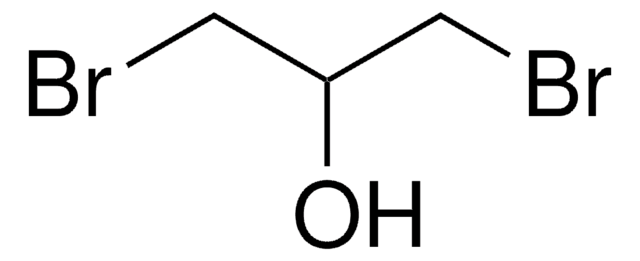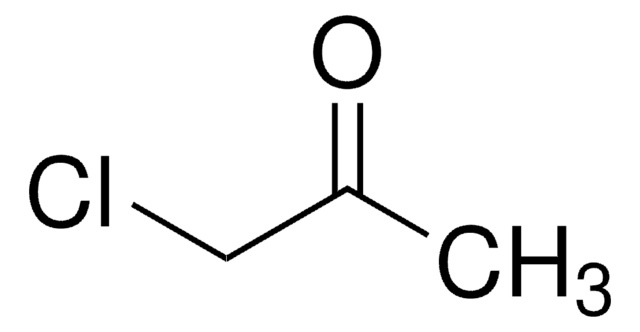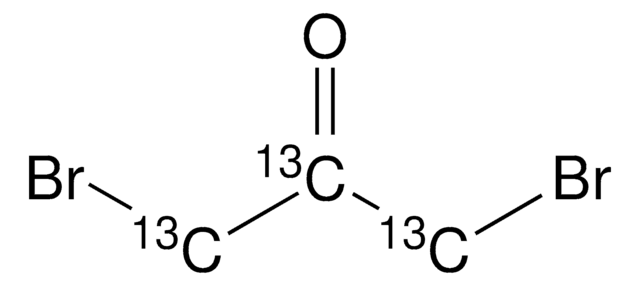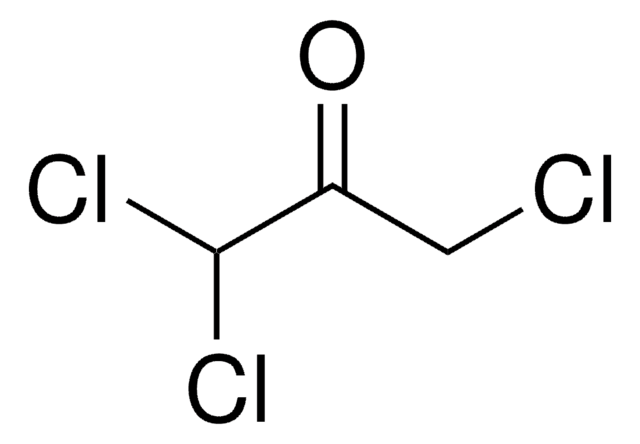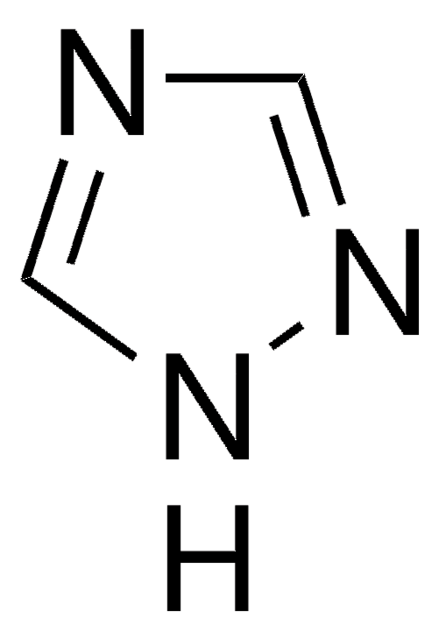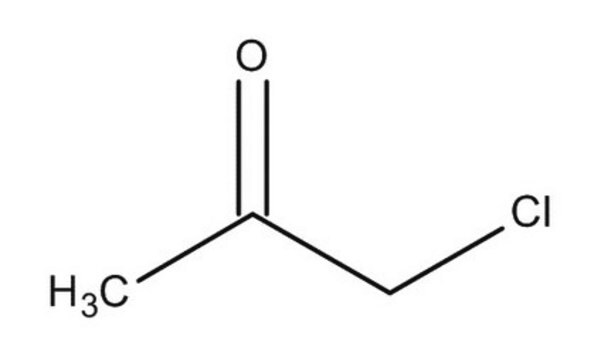About This Item
Recommended Products
vapor density
4.38 (vs air)
Quality Level
vapor pressure
<0.1 mmHg ( 20 °C)
Assay
≥95%
form
solid
bp
173 °C (lit.)
mp
39-41 °C (lit.)
solubility
alcohol: very soluble
diethyl ether: very soluble
water: soluble
density
1.383 g/mL at 25 °C (lit.)
functional group
chloro
ketone
storage temp.
2-8°C
SMILES string
ClCC(=O)CCl
InChI
1S/C3H4Cl2O/c4-1-3(6)2-5/h1-2H2
InChI key
SUNMBRGCANLOEG-UHFFFAOYSA-N
General description
1,3-dichloroacetone is a dihaloketone derivative used as a reagent in the synthesis of complex multicyclic peptides.
Application
Signal Word
Danger
Hazard Statements
Precautionary Statements
Hazard Classifications
Acute Tox. 1 Inhalation - Acute Tox. 2 Dermal - Acute Tox. 2 Oral - Muta. 2 - Skin Corr. 1B
Storage Class Code
6.1A - Combustible acute toxic Cat. 1 and 2 / very toxic hazardous materials
WGK
WGK 3
Flash Point(F)
Not applicable
Flash Point(C)
Not applicable
Personal Protective Equipment
Choose from one of the most recent versions:
Already Own This Product?
Find documentation for the products that you have recently purchased in the Document Library.
Customers Also Viewed
Our team of scientists has experience in all areas of research including Life Science, Material Science, Chemical Synthesis, Chromatography, Analytical and many others.
Contact Technical Service